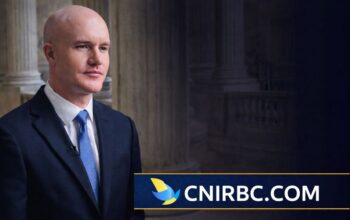 In a significant development that underscores the intersection of politics and finance, Robert F. Kennedy, a prominent Democratic figure, has pledged his support for Bitcoin and the freedom to transact with the popular cryptocurrency. Kennedy’s announcement has generated considerable interest, as it highlights his commitment to individual financial autonomy and his willingness to embrace the potential of blockchain technology.
In a significant development that underscores the intersection of politics and finance, Robert F. Kennedy, a prominent Democratic figure, has pledged his support for Bitcoin and the freedom to transact with the popular cryptocurrency. Kennedy’s announcement has generated considerable interest, as it highlights his commitment to individual financial autonomy and his willingness to embrace the potential of blockchain technology.
Kennedy’s statement resonated strongly with cryptocurrency enthusiasts and supporters, as he emphasized his intention to advocate for policies that would uphold Bitcoin and enable individuals to exercise control over their own cryptocurrency. He stressed the importance of maintaining a delicate balance between regulation and preserving the freedom to transact. Kennedy made it clear that he intends to implement controls to ensuring the security and integrity of the financial system.
“I will make sure that we have policies that support Bitcoin and the freedom to transact,” Kennedy affirmed. “And that allow individuals to manage their own Bitcoin wallets, nodes, and passwords. I will only allow the narrowest controls that are necessary to prevent money laundering.”
Kennedy’s position on Bitcoin signifies a noteworthy departure from conventional campaign financing methods, as he embraces the potential benefits and advantages of digital currencies. His endorsement of Bitcoin is not only a strategic move to tap into the support of cryptocurrency investors, but also a reflection of his party’s recognition of the shifting landscape of technology and finance.
This bold stance on cryptocurrency has elicited a range of reactions from both supporters and critics. Advocates argue that Kennedy’s support for Bitcoin aligns with the principles of decentralization, individual empowerment, and financial inclusivity. They view this endorsement as a progressive step towards mainstream acceptance of cryptocurrencies. However, skeptics express concerns regarding the potential risks associated with the unregulated nature of digital currencies.
As the Democratic Party gears up for the upcoming elections, Kennedy’s commitment to Bitcoin and individual financial freedom sets him apart from other candidates. It remains to be seen how this stance will shape his campaign and whether it will inspire similar sentiments within the party or among his political rivals.
Robert F. Kennedy’s unequivocal support for Bitcoin and his commitment to preserving individual financial freedom demonstrates his forward-thinking approach to politics and finance. By embracing the potential of blockchain technology, Kennedy aims to champion policies that strike a delicate balance between regulation and the empowerment of individuals. As the political landscape evolves, Kennedy’s position on cryptocurrency is likely to spark further debates and influence discussions on the future of financial systems and campaign financing.



